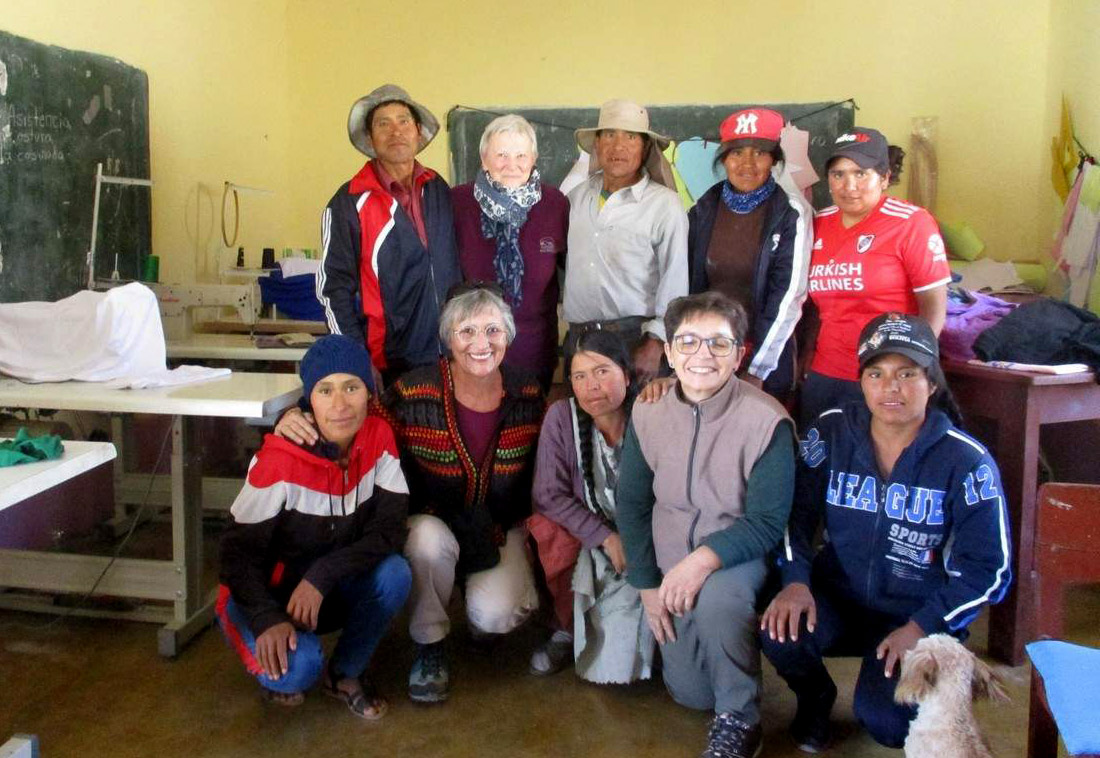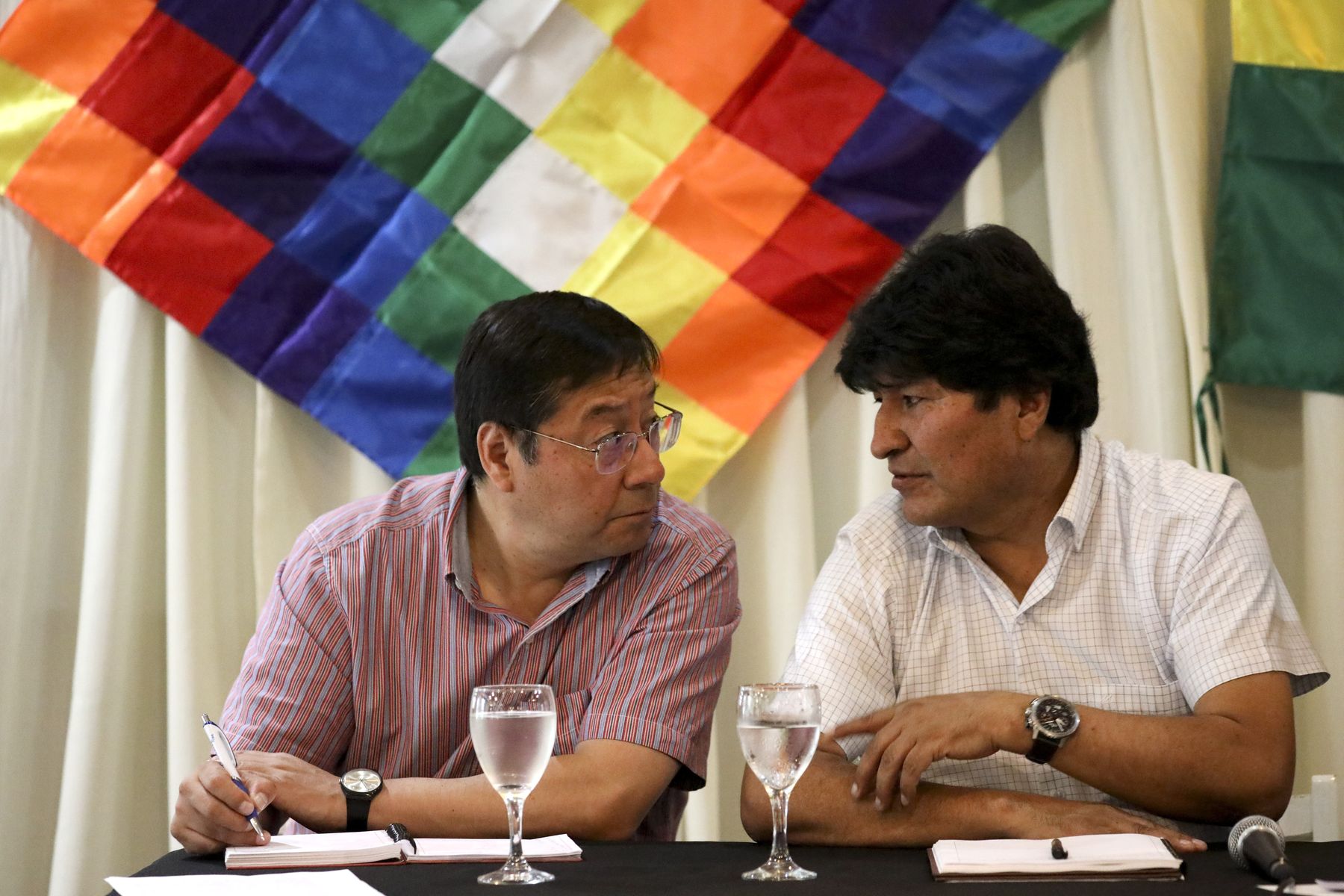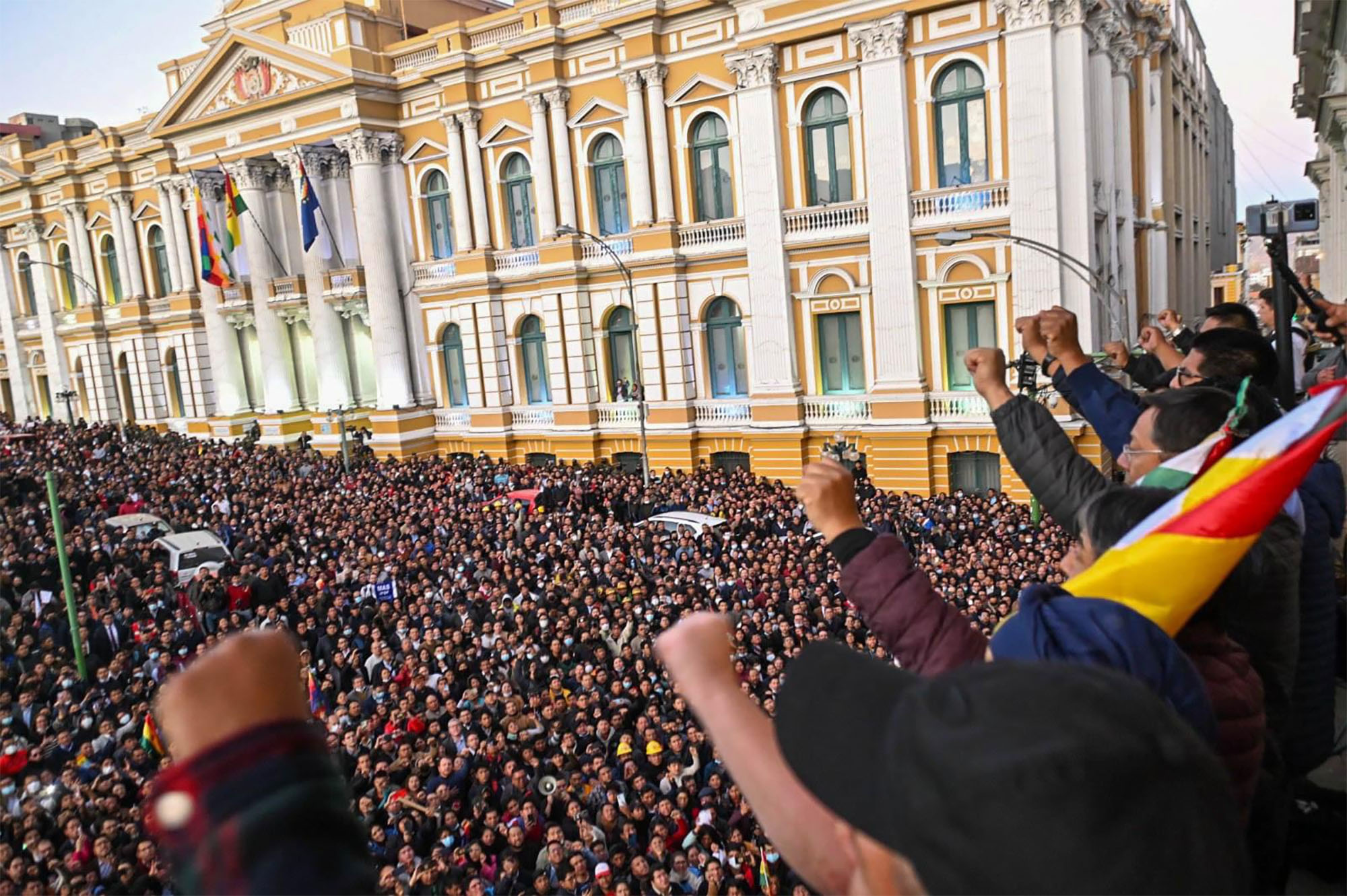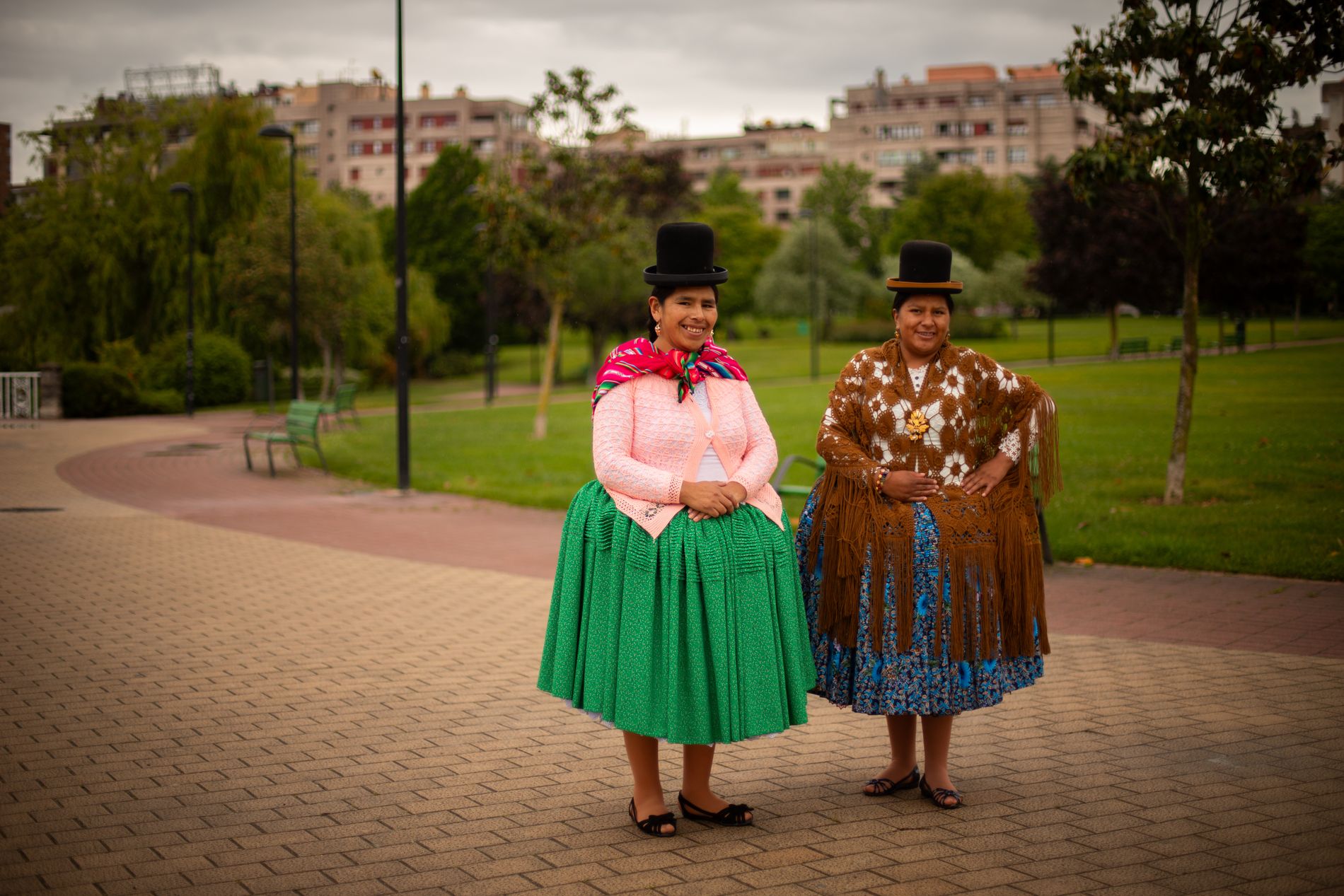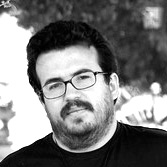"The negotiations between the HAF and the coup leaders are in their infancy"
- He has served as a minister for the last eleven years. He lives in "clandestine" from the coup and speaks from his hideaway with ARGIA and Hala Bedi, a conversation recorded on the night of November 15. He says that there are times of great uncertainty in Bolivia. On the one hand, it is a gross crackdown on the street. On the other hand, the “complex” negotiations between the HAF and the coup leaders have just begun. Meanwhile, indigenous movements and citizens have taken the lead in the fight against the coup and are developing their own agenda that could be carried out above the parties.

On 20 October, presidential elections were held in Bolivia. Carlos Mesa, from the Citizen Community, and Evo Morales, from the Movement to Socialism (MAS), were the main candidates for office. The vote count process was suddenly interrupted at dusk, when 84% had already been counted, with seven points of advantage over Morales. A day later, when the final results were given, the difference exceeded 10% by a few tenths, the barrier to make the second round or not. Some social and political sectors denounced fraud and organized protests, while the government defended the legitimacy of the results. In the coming weeks the situation has become more polarized. On November 10, the head of the army "suggested" the president to leave the government, after which Morales announced his resignation. New coup d'état in Abya Yalan [America for indigenous people].
On 11 November, he resigned as Minister of Education, the day after Morales did the same. The attacks have taken place against senior officials of the Government of Mas and members of his family, including many wounded. What's your personal situation?
Many ministers and deputy ministers have sought support. As was said during the dictatorship, we had to resort to secrecy. We're hiding and we can't get out on the street. The new minister of government has used the word "hunting", usual in the dictatorship, to announce that he will act against senior officials of the former government.
The protests that have been transferred to a coup d'état originated from allegations of scam. Was there any fraud in the elections on 20 October?
The answer is correct: there was no fraud. The technical problems were, they were pointed out by the Electoral Tribunal itself. Rumours of fraud spread before the elections in order to cast doubt on Morales’ expected victory from the very beginning. On 20 October, before the final results, they began to talk about fraud, with the aim of provoking the reaction of a part of society. The protests began, because the police or military repression that the opposition had been able to do freely had not been directed against them. The Organization of American States (OAS, OAS) pointed out in a report the lack of transparency, but subsequently the independent organizations have denounced that the report is manipulated. In the end, the police and the military helped the opposition in its actions.

Protests in the early days were massive. What sectors did they mobilize?
The mobilizations have been highly classicistic. Middle and upper middle class sectors have been organized against the government of Morales, the bourgeoisie and the small bourgeoisie. Young people stand out, mainly students from private universities. Significant mobilizations were carried out in the cities.
Gradually, the request for the second round of the elections gave way to the coup discourse and mobilizations became increasingly violent. Did the golfers capitalize on widespread malaise?
The denunciation of the fraud was used to promote mobilizations such as that of Nicaragua or Venezuela, and they were strong in the cities. When the popular sectors began to mobilize against the denunciation of fraud, armed opposition groups appeared and repression was extended with the cooperation of the police.
"The process initiated by the right has been carried out at the far right"
In the midst of the protests, Carlos Mesa disappeared from political life and his place was occupied by Luis Fernández Camacho, who became president. Who is Camacho?
The process that has begun on the right has developed at the tip of the right. Carlos Mesa is right-wing, and from that position he built a convergence between middle classes and oligarchic classes. It achieved about 37 percent of the votes. Camacho was taking leading roles as the elections were lagging behind. Camacho is a Santa Cruz entrepreneur linked to the most radical sectors on the Bolivian right. In 2008 there was an attempt to divide Bolivia through a military group. These groups and people linked to paramilitarism have gradually left the Bureau of the decisions. On the day that Morales called for the president’s resignation, Mesa was against the Constitution and declared it unconstitutional. The following day he joined the request for resignation, which was submitted to the European Parliament. You can see Camacho in all the high-office appointments that the golfers have made, while Mesa does not appear. It has also disappeared from the press.
What role have the armed forces played? It is said, on the one hand, that it propelled the coup, but, on the other hand, that the coup d ' état and then renewed the police and military domes.
The attitude of the police and the army has been decisive for the coup d ' état. The president did not want blood or death, so he resigned and raised new elections. The opposition did not accept it and appointed Janeina Áñez as president of JxCat in breach of the Constitution and legislation, with the support of only one third of the parliamentarians. Two thirds of the seats are in the hands of MAS representatives, and they were not presented to the session.

Several media outlets have denounced that the Evangelical Church has protected the coup in both political and economic terms.
In all the elections, several evangelical churches have fueled polarization, representing Evo as a devil and the opposition candidate of the time as a god. In the final moments of the coup, the two have played a decisive role in the attack.
It has drawn attention to the extreme attitude that the coup d ' état has explicitly shown in the party ' s takeover. President Añez says that the indigenous people are “satanic” in the hands of the giant Bible, announcing the “hunting” of Minister of Government Murillo...
Añez has replaced the police and army leadership, setting those who have supported the coup in high office. It has also appointed nineteen new ministers, linked to the territory of Santa Cruz de Tenerife and to the extreme right of Bolivia. Those who have taken power in the coup government, so to speak, are not among the best on the right. These are some of the most reactionary sectors, as demonstrated by their public demonstrations or those carried out via Twitter. They have come to name, literally, Camacho Mesías. Very conservative messages have been given about women and indigenous people.
In recent days it seems that a warmer picture is being attempted.
It's true. The Wiphales were burned, a symbol of indigenous peoples and inclusion. One day he was burned and another was kissed. It is now in all official acts. With the indigenous people there has been a desire to reduce tensions, but what they have achieved is to be even more outraged.
“The objective of the negotiations between Mas and the golfers is to stop the repression and reach a consensus on the electoral call”
Áñez announced that he was going to call elections "as soon as possible", but has not set a time limit for this. The day after his appointment as president, Mas’ deputies and senators have appointed Eva Kopa as president of the Senate and Sergio Clash as president of the Chamber of Deputies, both of Mas. Are the nominations the result of an agreement?
What has happened in Parliament is very complex. During the first two days of the coup the action of the parliamentary representatives of MAS was prohibited. Subsequently, parliamentarians overcame this ban, regaining political initiative. The appointment of the new political leadership of the Senate and the Chamber of Deputies has been the result of a political agreement. This is a pre-agreement that will enable Parliament to regain its functioning. The Basque Parliament must appoint the Electoral Tribunal, with the support of two thirds of its members. The same thing for holding elections. The opposition has only one-third of the delegates and two-thirds MAS. The last information we can provide is that a negotiation is taking place, in the beginning, between representatives of the extreme right and the extreme right and some parliamentary sectors of MAS.
Are the new elections the objective of these negotiations you mention? If so, would Evo Morales be a candidate?
The aim is to curb repression and reach a consensus on the convening of presidential elections. The point is that the coup opposition wants to impose its conditions. The first is that the HAF does not show up for Sunday's elections. That is intolerable, it would be for the minority to vote for the majority. The second point is whether our chairman and brother, Evo Morales, may or may not be a candidate. In a tweet, Evo pointed out that his desire is to pacify, that the Bolivian people should not suffer the massacre and that they may be willing to give up the presidential candidacy.

What is the situation on the street?
The movements of El Alto, the farmers, the coclergy sector and the miner are carrying out massive blockades and marches, mainly in Cochabamba and La Paz. The repression of demonstrations is brutal. The deaths since the elections are at least eleven, eight days after the coup in various blockades and marches [the day after the dialogue, on 16 November, several anti-coup sources have raised the death toll to 23, while the coup government has approved the decree of impunity of the armed forces]. In addition, the military has established checkpoints on the city streets and arrests are being made in France. In recent hours there has also been a severe repression against the diplomatic delegations of Venezuela and Cuba, among others. Cubans who were providing assistance in the field of health and education have been expelled from Bolivia.
“It is unacceptable that the HAF should not present itself to the elections, it would be for the minority to vote for the majority”
What can be expected for the coming days and weeks?
Uncertainty is big. To take steps forward in the negotiations, which can prevent increased repression, and to reach a democratic agreement. But these days a second key has been created, which has an upward trend: popular mobilization. Mobilisation is taking on its own character, new leadership is being created and it is not possible to predict what the outcome will be.
Are you saying that the new proposals and leaders of the citizenry can overcome the HAF by creating a different scenario?
It is an opportunity, popular movements and indigenous movements are developing their own approaches and objectives. They claim, among other things, a space of their own in any negotiation for a political solution. The situation has gone beyond the party framework, it has become more popular, political and ideological pluralism is great. From very radical positions in the indigenous sphere to the militancy of the HAF.
Morales said that the goal of the coup is to end Mas’ achievements and policies,” he added. What valuation do you make of the 13 years of government?
The governments of Evo Morales have introduced structural changes in the economy, in the structure of the State, in justice, in education, in health or in infrastructure. After the nationalization of hydrocarbons, Bolivia's GDP increased from 9.000-10 billion dollars to 40,000 million, as the money that companies carried was transferred to the State. With these incomes, the economy has stabilized. Investments have increased and Bolivia has had the highest economic growth in Latin America. Illiteracy in education was 13 per cent and is currently below 2 per cent. One of the main achievements is the extension of the right to education to the whole of society. The aim is not to get Evo out of government. The goal is to return to the previous model, which made the rich richer and the poor poorer. Bolivia has become a stable and strong economy, which wants to put an end to that and to the social policies of the area.

Apart from the right-wing and the coup d ' état, the Government has received criticism from the Left and the indigenous world over the years. For example, maintain an extremist economic model or practice co-optation and authoritarianism in the face of bottom-up criticism. In 2016, Morales called for a referendum to re-qualify for the presidency beyond the limits set by the Constitution. He did not impose himself, but it was the judiciary that allowed him to stand for election. This provoked a lot of criticism of Morales.
Criticism has been harsh. The policy of obtaining economic resources through hydrocarbons and lithium, for example. Bolivia is driving its industrialization, a weak and vulnerable industry to foreign economies. The resources to drive industrialization have been given to us by hydrocarbons. The strongest criticisms have been made in the area of agricultural development, around a campaign of disrepute. It was said that we wanted to develop livestock to export it to China. It is a special debate. Those who called for the promotion of livestock farming were big owners, and it was they who pushed the coup.
“Evo has lost support among the middle class of the cities and this loss is related to the referendum”
Loss of protection can be observed in recent years: In the 2014 elections, Mas won 61% of the votes, compared with 47% on October 20. Have Morales and the government come weaker to these elections and less forcefully to stop a coup?
It's been just over thirteen years of government. The elections show a loss of support. But it's important to look at the political map of votes. MAS and Evo maintain a high level of protection in rural areas. The loss of support has occurred between the middle class of the cities. This loss is linked to the referendum. Has this loss influenced the mobilizations of these days? On a level yes.
Has the United States intervened suddenly?
Documents have been published showing that the United States has directly supported and financed the coup.
How can events in Bolivia be placed in the context of Abya Yala?
A few years ago, leftist governments were numerous and strong: Venezuela, Uruguay, Chile, Argentina, Brazil... That changed when the United States changed circumstances in countries like Ecuador, Chile, Peru or Brazil. But in Brazil or Argentina it has become clear that the positions of the left continue to maintain strength and that the people do not accept right-wing governments. In this context, the government of Morales and his position against imperialism were a threat, because, despite being a small people, it had a great reference. But we have to be clear that there is an economic base. Gas is important, but Bolivia has the largest lithium reserve in the world.
In the Basque Country, there have been demonstrations against the coup d ' état and machista violence. Do you have any message for people who are experiencing the events of Bolivia with concern or rage?
We are receiving many expressions of solidarity throughout the world, we appreciate and thank them. We call to continue fighting so that the coups do not turn in Latin America and in the world.
This interview is the result of the collaboration between ARGIA and Hala Bedi (the audio of the interview, on the website of Hala Bedi (the written version is longer):
Zubiak eraiki Xiberoa eta Boliviaren artean. Badu jadanik 16 urte Boliviaren aldeko elkartea sortu zela Xiberoan. Azken urteetan, La Paz hiriko El Alto auzoko eskola bat, emazteen etxe baten sortzea, dendarien dinamikak edota tokiko irrati bat sustengatu dituzte.
The sub-provincial elections in Bolivia, held on March 7, can be read as a radicalization of the conflict scenarios, with the MAS being the most hegemonic party at the national level, but with a right with a strong and radicalized presence in the department of Santa Cruz and in... [+]








